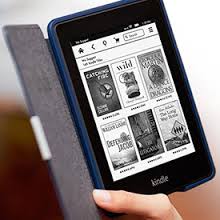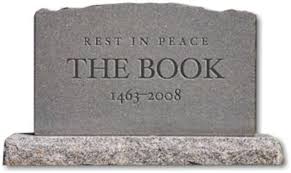When I was younger, I used to read quite a lot. I had an older sister, who, when finished with books she had, gave them to me. I dutifully read these books with excitement, and grew a passion for books. Fast-forward to my first year of high school. As part of my high school curriculum, each student was given a laptop to complete school assignments with. At first I still continued reading paperback books in tandem with laptop computer assignments. However as the year went on, and my workload increased, I saw a decline in the books I read. Even today, as I write this, I realize I haven’t read a paperback book for enjoyment since freshman year. Don’t get me wrong, I have read many books since freshman year for enjoyment, but they have all been contained within my laptop. Unfortunately this technological reading trend isn’t exclusive to just me, as book sales are dropping worldwide by a drastic amount.
Within the US in 2012, book sales were down 9.3%, in Spain they were down 10.3%, in South Africa they were down 8.8%, and the list goes on. Between 2011 and 2012 the total mass-market sale of paperbacks fell by 20.5%.
With paperback book sales falling so rapidly, it’s quick to point fingers and start blaming people. While the sales of paperback books are falling, ebook sales between 2011 and 2012 (the same period in which paperback sales fell by 20.5%) increased by almost 45%. At the same time, the amount of people in the world purchasing tablets and laptops has increased steadily over recent decades, inverse of the sales of books.

The question from all this is: What can we do to fix this “problem”, and does it matter?
Unfortunately physical books are a trend in my eyes. Just as VCR tapes gave away to CDs, and how CDs gave away to digital media, physical books are giving away to ebooks. Economically this marks a huge shift in the market, as books have always composed a huge portion of American sales. Just alone in 1994, book sales accounted for nearly $19Billion, with big companies like Borders and Barnes & Nobles accounting for a fourth of those sales. Similarly VCR sales went on a huge upward trend starting in 1988, and continued until 2000 where DVD players were made cheaply available to the public. As such, the VCR industry slowly declined until 2004, where it completely collapsed. After the DVD age came about, the same thing happened during the digital age (which we’re now currently in the middle of), in which consumers preferred viewing and listening to media from the comfort of their own homes, on their own devices. This spelled disaster for big companies such as Blockbuster. So in short, books have been around much longer than movies ever have been, however in this technological age I do not see a recovery of physical books.

With all that being said, the question of “does it matter?” still remains. The book has always been a fundamental part of human culture since… forever, although widespread reading didn’t become a part of American culture until after the printing press was invented. However, nothing is definite in the world, and as such it appears physical books are fading into novelty.
Sources:
http://www.thenation.com/article/168125/amazon-effect

Even though I’ve always been a Barnes&Noble girl myself, I did notice a few years ago when my local Borders (and the company of Borders in general) went out of business. I always figured it was due to the competition of Barnes&Noble, but now I see how the switch from paper book to ebook could have easily contributed. Now when you walk into a Barnes&Noble the first thing you see is their nook display. I think it’s smart how Barnes&Noble as a firm is updating their product to adjust to the demands of the costumer, it reminds me how cigarette companies are taking monopoly of electronic cigarettes in order to still make the same profit they made with their original product.
LikeLike
The demise of paper books is a sad thing indeed. However, I think that books are not exactly in the same boat as CDs and VCRs, because they’ve been around much, much longer, and have a much stronger community supporting them (take Foyles in London or Powells in Portland for example). While books may disappear (though not completely) eventually from the main stage, ebooks and tablets still have a ways to go before they can outmatch the satisfying appeal that attracts people to books.
LikeLike
I suppose I have always seen the need or want for books to be on tablets was because of the accessibility. I think it’s a fair argument to say in this century people are “on-the-go”, so to speak, a lot more. So having all your books on one small device is a much more attractive idea to people instead of carrying bulky books around with them everywhere. So I think the change in the industry is not purely a discussion of how technology has changed, but also how the social settings that books are being used in has changed.
LikeLike